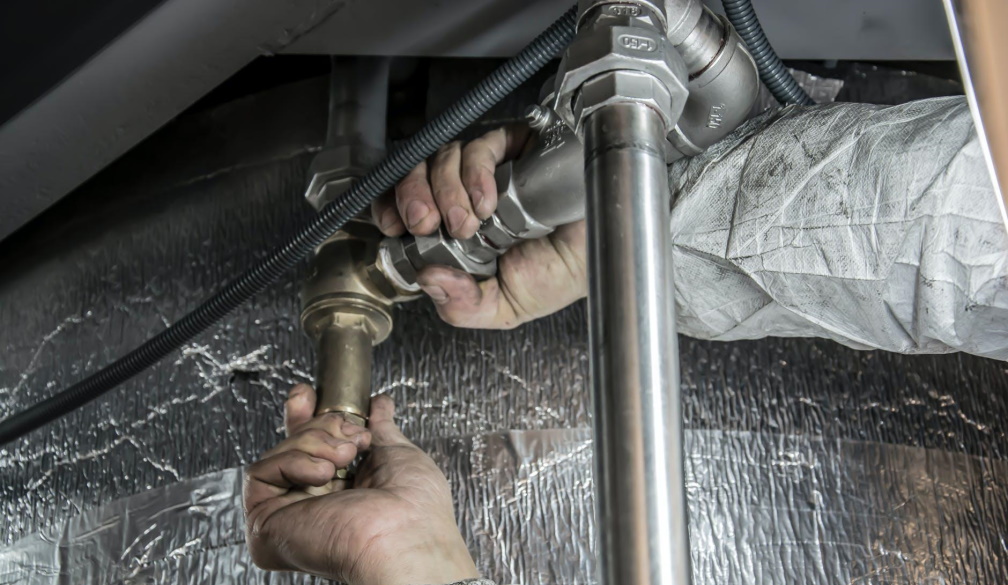How to Handle the Most Common Plumbing Emergencies
- Written by NewsServices.com

Plumbing emergencies are every homeowners’ worst nightmare that can cause even the most laid-back people to panic. Not only do they typically happen at the worst times such as the weekends and holidays, but they can also trigger an avalanche of thousands of other problems.
The most common plumbing emergencies in Australia such as a toilet overflow or clogged drain can be fixed with simple household tools, but others involving leaks, or sewer backups need the assistance of a qualified professional.
The best way to handle a plumbing emergency is to know and understand what to do before they happen. Here are a few tips on how to handle them when they do appear.
Shutting off the water
The minute you notice a problem, shut off the water. This should prevent any further damage since even the smallest water leak can cause thousands of dollars’ worth of structural damage to your house.
If you have a leaking toilet or faucet, shut off the water that goes directly to that fixture. If you can’t find the exact valve or the water flow won’t stop, turn off the main water supply to your home. The water shutoff valve should be located close to the water meter, and this is something you should determine as soon you move into a new place.
Water heater malfunction
Water heater malfunction is among the serious issues you can have. You might notice discoloured water, a strange smell when the water is running, or a lack of hot water. Also, when a water heater is malfunctioning, there might be significant leaks which can lead to the loss of all of the water from the tank. It usually progressively worsens until the water heater fails completely. A crucial factor to your water heater longevity is regular annual maintenance done by an experienced hot water plumber.
Assessing the damage
Once the water has been shut off, try to pinpoint where the plumbing issues originate. Follow the trail of moisture, mold, water damage, or warped flooring. A damp, stale smell can also signify a problem, so activate all your senses to locate the issue. If possible, evaluate the extent of the damage before you decide to call your emergency plumber.
A serious plumbing problem is not a small deed and often requires the expertise of a professional, licensed plumber. If you estimate that your plumbing issue isn't something you can handle yourself, leave it to the trusted professional plumber from Northern Beaches to handle it for you.
Overflowing toilet
An overflowing toilet is probably the most unpleasant sight you can see in your bathroom! As your bathroom is probably the most hard-working room in your home besides the kitchen, it’s understandable that a clogged toilet happens often. Use a plunger to quickly fix the problem to avoid any wastewater damage. However, if there’s an underlying issue with your overflowing toilet, the best course of action is to let your plumber identify the cause.
Clogged sink drain
Severely clogged sink drains are also a frequent occurrence and when they happen, they can prevent the water flow and cause a plumbing issue. You should typically be able to resolve it using a plunger or a drain snake. But if that doesn’t help, it’s not recommended you use a chemical drain as it could damage your drain pipes. If your sewer line needs to be cleared, call in the pros.
Burst pipes
Pipes can burst when the water pressure builds up in the weakened joints of a pipe. Once it crosses the line, the pipe will burst and cause a plumbing fixture to fail, typically a faucet or toilet. There will be a loud popping noise when the pipe bursts, but most homeowners don’t hear it. If you happen to hear it, it’s best you call a plumber immediately. Burst pipes can cause serious water damage, depending on the severity of the problem and that is why you have to make regular pipe checks.
Sewer backup
Each home has incoming water lines and outgoing sewer lines. The sewer lines take the wastewater away from your home. When sewer backup happens, it’s commonly due to clogged pipes, which is caused by a build-up of toilet paper, hair, and grease. If multiple drains in your home have clogged, you hear gurgling toilets or sense bad odors from the drains, you might have a sewage problem and should get it fixed as soon as possible – call your plumber and make sure you have regular sewer inspections in future!
Plumbing emergencies always show up at the least expected moment and typically catch you off guard. That is what makes them so uncomfortable. Dealing with them is never fun, so it’s best to be prepared and know what to do once the disaster happens. Hopefully, the tips listed here will help you handle the situation like a pro!



















